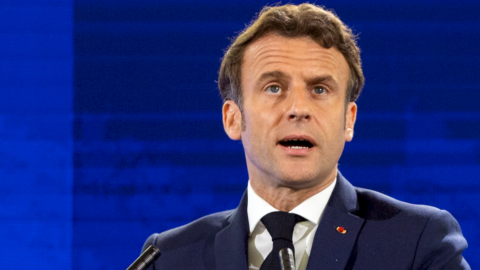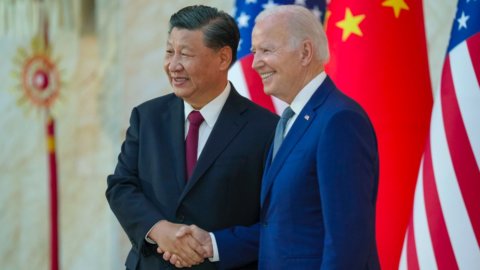Freedom & Responsibility
Lack of empathy but extraordinary leadership skills. These, apparently, are the main characteristics of Reed Hastings, the founder of Netflix: an entrepreneur with great ambitions but what reasons for small goals. A boss who love the discipline but has in I hate bureaucracy and formal rules. Of this personal vision of the world and of corporate work, Hastings has made a real one company philosophy, written in a famous power point document that caused a sensation in Silicon Valley.
Il cultures doc of Netflix, written by Hastings himself together with his human resources staff, boasts to date 7 million views on SlideShare, despite the fact that they are 126 very simple slides without animations or special effects. Everything is played on two key terms: freedom and responsibility, seen as opposite but complementary entities like the yin and the that. Freedom at Netflix consists of wages much higher than the norm (receivable both in cash and in market shares and renegotiable every year) and in unlimited holidays. Hastings recently introduced one year paid parental leave for new fathers, as well as new mothers of course. Responsibilities, on the other hand, see the company taking the sporting metaphor of the company very seriously Serie A team and make of the excellence of high performance an essential principle, so much so that you don't get too many compliments when you fire those workers who do not correspond to a certain standard of performance.
Patty McCord, who was head of human resources at Netflix for 14 years and personally helped draft the cultures doc, argues that entrepreneur Hastings has two nightmares: the corporate bureaucracy which regulates large companies and theprofessional immaturity that blocks or slows down the productivity of a team. The Netflix document is a long exaltation structured on 7 key points of how the personal freedom (also in the form of high wages and paid holidays) determine a form of collective maturity reserved for a select few responsible adults who do not need checks and protocols to care about the evolution of the business.
For all the others, an excellent severance pay and a guaranteed place in a company where theme parties, office football, free sushi and customized T-shirts matter most.
Todd S. Yellin, vice-president of the Product Innovation sector of the Los Gatos company, in an interview with BusinessWeek assimilates the figure of Hastings to that of Danny Ocean film Ocean's Eleven, or the one who recruits only the best in the field to do big hits and share the big loot equally. And the real "big coup" of the Hastings gang, after that of "robbing" the large multinational video store chains, was precisely that of pointing straight to the Hollywood industry.
I know what you see, I know what you want
Freedom and responsibility, on closer inspection they are the constants of every Netflix operation. The freedom to keep a movie as much as you want and to see (more or less) as much as you want creates a responsible user, ready to give up piracy and illegal downloading for a good, legitimate and alternative service.
This form of freedom is what Hastings had in mind when, in 2008, he decided to develop a streaming service with high quality and a wide offer. In a few years, he manages to sign agreements with large distributions to the point of creating a price list of almost 100.000 titles. But, compared to piracy, Netflix's added value is not only in the possibility of seeing everything and seeing it now, but also in the give the user the feeling of knowing what to see. If there's anything the Hastings gang has learned from their conflict with Blockbuster, it's that seeing all means know how to archive one's own contents well, so as to make them available to anyone who can use them. And here comes another great Netflix legend: the Cinematch algorithm.
Among the various collaborative filtering software used by large sites retail, cinematch is one of the most famous algorithms able to report every time what else you might like in the catalog based on your previous choices. Compared to Amazon or iTunes, Netflix has started collecting feedback from users and providing personalized reports and suggestions late. But ever since he did, roughly 2000, he's been hard at work building a real oracle, a machine capable of predict the tastes of its subscribers.
This obsession with an audience increasingly motivated to consume films and satisfied by the automatic recommendations of the service, in 2006 Hastings made the data collected over the years available to launch an open competition, aimed at improving the algorithm's prediction rate by as much as 10 percentage points.
Il Netflix Prize million dollar prize was won three years later by a large group of computer engineers from various backgrounds, even though Netflix never seems to have incorporated the new improved algorithm, declaring that he wants to go beyond the forecasts of the stars attributed by users to a given film, and to be able to imagine the tastes even going beyond the boundaries normally imposed by genres.
To accomplish all of this, you need to structure a extremely complex database, where each film and television series is meticulously analyzed and tagged with extremely specific tags.
Alexis Madrigal, a reporter of the The Atlantic, he embarked on the enterprise of encode Netflix grammar and the result, against all the most absurd predictions, is that the system predicts 76.897 film combinations. A dizzying amount of alternative micro-subgenres (renamed other genres) with which Netflix not only reconstructs and reorients our tastes, but he conceives the most profitable plots for his future productions.
The incredible scoop opened the doors of the Los Gatos company in Madrigal and attracted the attention of Todd Yellin.
Tagging each film was in fact his idea, articulated in a 24-page document titled without false modesty the "Netflix's Quantum Theory”: a painstaking work of classification of film plots that would make the Russian formalists and the brightest narratologists pale. Every detail is classified and articulated with an incisiveness rate from 1 to 5: from the work of the protagonist characters to the type of ending, from the time and place of setting to the clothing worn, not to mention that every famous director or actor has a own sub-category.
Some of the possible combinations are so absurd, that not even a crazy director passionate about b-movies could take inspiration from. Madrigal cites some examples, such as “Mystery for families inspired by a contemporary novel set in prehistoric times” or “A tearjerker action movie based on a successful children's novel”. But, if we consider that the algorithm automatically removes those genres that don't correspond to any film, we can get a vague idea of how much this data represents a gold mine for any Hollywood screenwriter or producer.
Streaming of awareness
And here we are at the last (for the moment) chapter of the story. What tells the transition to production of original content for Hastings' company able to compete with the large US networks. 2013 is theannus mirabilis for Netflix: his stocks soared 240% in a year, with an income equal to 1,3 billion dollars; in the world, has achieved more than 40 millions of subscribers, including 33 in the United States alone; his television series House of Cards (the result of a 100 million dollar investment) has garnered rave reviews and awards in major competitions such as the Emmys and Golden Globes. Two years later, worldwide subscribers have risen to 62 million and the investment in original productions in 2015 is close to 10 billion dollars. A mind-boggling figure even for a major television network. Suburra will be the first TV series produced by Netflix in Italy.
House for Cards however, it remains the decisive step in imagining the future of the company. Netflix has never hidden, indeed, has boasted of the fact that the elaboration of the project House of Cards is entirely the fruit of one meticulous study of consumption data of its users, from which emerged the sure success of a other genres such as: “Political thriller with Kevin Spacey directed by David Fincher”. Not only. Kelly Merryman, vice-president of content acquisition, has officially stated that they are piracy data on the most downloaded series to direct the purchase of new products to be included in the Netflix package.
on your part, Hastings said: “Sure, torrents are still being used to illegally download movies all over the world, but I think a lot of them are just for increase the demand for films. Piracy increases demand, so when the service reaches a new country, people choose the simpler product that has a lower cost." This clearance of piracy, together with a declared and transparent use of big data of users, is an integral part of the philosophy user-oriented with which Netflix has changed the cinema-television consumption habits of half the world.
No more schedule. At the total freedom to see everything at once (including all the seasonal episodes of a television series) made to breathe by illegal platforms, Netflix combines the added value of transmission quality and the presumption of know your cinematic tastes better than you do.
Netflix's archive of movies and TV shows totals over 3.14 petabytes of information (ironically, all uploaded to Amazon's servers), for a vast catalog that mixes the present and the past of the biggest studios. Matthew Bitanti, professor at California College of the Arts of San Francisco, calls Netflix's digital distribution model a buffet philosophy, opposite to that à la carte of iTunes: “Netflix understands that the only way to survive and compete with iTunes and the like as well as stem the rise of video-on-demand is tooffer new contentnot found elsewhere".
On the other hand, it has also figured out that to compete with the big cable television networks that produce incredibly successful tv series such as AMC e HBO must ensure that these unpublished contents are, once again, able to compete, in terms of means and results, with the best hollywood productions.
But, just as the story told here teaches us, for Netflix to beat a Blockbuster is an achievable feat.




